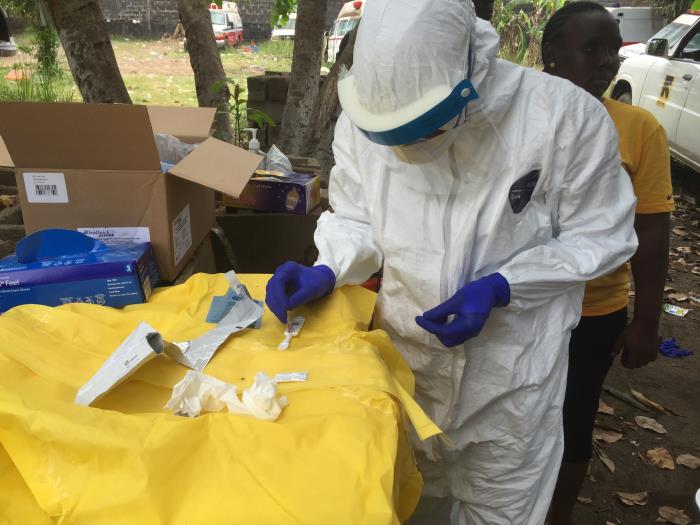The 7-1-7 Alliance, a country-led initiative providing technical assistance and financial support for adoption and use of the 7-1-7 target in country, is requesting proposals for operational research projects.
The 7-1-7 target sets clear performance standards for three timeliness metrics:
- 7 days to detect a suspected disease outbreak;
- 1 day to notify relevant public health authorities;
- 7 days to complete early response actions.
When a country consistently meets 7-1-7 performance standards, early detection and response systems are performing optimally to contain outbreaks before they spread. Ongoing use of the 7-1-7 approach allows countries to maintain and continue to improve their performance—the sooner threats are detected and contained, the more lives can be saved.
Countries rapidly improve early detection and response when 7-1-7 standards aren’t met by quickly and systematically surfacing bottlenecks to timely and effective action. Once identified, many bottlenecks can be easily addressed, and progress on those requiring longer-term efforts can be accelerated by using 7-1-7 data to prioritize action and advocate for necessary resources.
Since 2020, Resolve to Save Lives (RTSL) has undertaken several research and learning activities related to the 7-1-7 target. RTSL conducted an extensive review of existing outbreak timeliness data to better understand if shared goals for timeliness might galvanize countries toward performance improvement and outbreak prevention. The initial study reviewed timeliness for 296 outbreaks that occurred during 2017-2019 and found a median 8 days to detection and 3 days for notification. These historical data were triangulated with median incubation periods for epidemic-prone pathogen.
A review of 41 public health events from 5 countries found that 54% percent of events met a target of 7 days to detect (median 6 days), 71% of events met a target of 1 day to notify (median 0 days), and 49% of events met a target of 7 days to complete all early response actions. Eleven (27%) events met the complete 7-1-7 target, with variation among event types. This review suggested that a 7-1-7 target is ambitious yet achievable for most outbreak events.
The 7-1-7 target has now been included in strategic policies, frameworks and operational plans of the World Bank and Global Fund, as well as many operational plans for partners and donors.
Two rounds of proposals will be accepted in 2024 and 7-10 research grants (suggested funding level: USD 50,000-75,000 per project) will be awarded. Applicants are required to submit an Expression of Interest (EOI) by February 16, 2024 to be considered for the first round of funding.
Request for Proposal (RFP): Operational research to strengthen evidence, use and adoption of the 7-1-7 target for performance improvement. Expression of Interest due 16 February 2024.
A toolkit for using 7-1-7 is available in English, French, Portuguese and Spanish.


